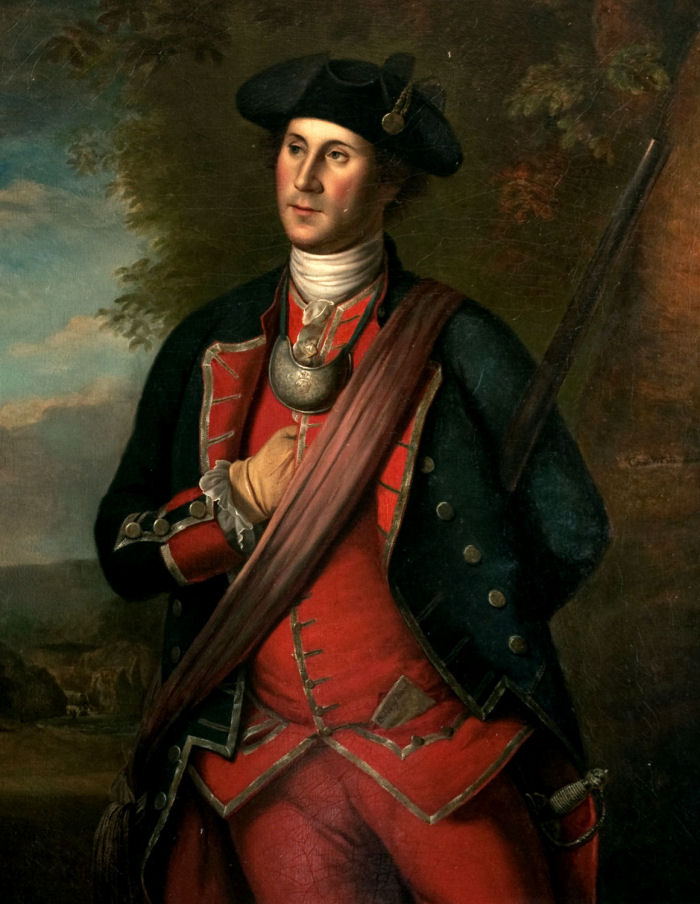
Colonel George Washington
Contrary to what many people believe, George Washington was not always a General before he became our first President. He served as a Colonel during the Forbes Expedition of 1758.
It often comes as a surprise to some people when they find out that Colonel George Washington was not the leader of the Forbes Expedition. That surprise comes from their lack of knowledge that the British Army did not consider the Colonial armed forces as being on their level. In fact, the colonial forces were often sneered at by the proper British Army.
George Washington was a colonel in the Virginia Militia. Although his rank was prestigious within the colonial Virginia army, he just simply was not on the same level as a colonel in the British Army, and therefore was subordinate to Colonel Henry Bouquet during the Forbes Expedition of 1758.
It should be noted, also that Colonel Washington's Virginia Militia was not the only force supplied by a colony for the Forbes Expedition. There also were provincial units from Pennsylvania, Maryland, Delaware and North Carolina. In addition to Colonel George Washington, commanders of the other units included Colonel John Armstrong (1st Pennsylvania), Colonel James Burd (2nd Pennsylvania), Colonel Hugh Mercer (3rd Pennsylvania), Colonel James Byrd (2nd Virginia), Colonel John Dagworthy (Maryland). Captain Richard Wells (Three Lower Counties on Delaware), Captain John McClughan (Delaware), Captain Benjamin Nixon (Delaware), and Major Hugh Waddell (North Carolina).
While the various units converged on Fort Bedford along the Forbes Road cut between Carlisle and this region, Colonels Washington and Byrd cut a connecting road from Fort Cumberland to the south. The Virginia Colony's Governor Dinwiddie pressed Washington to try to convince General Forbes to discontinue the road being cut westward through Pennsylvania and instead utilize the previously cut Braddock's Road. If the use of the Braddock Road had been approved, the primary route for supplies would have been through Virginia, not Pennsylvania. Washington requested a meeting with Bouquet halfway along the road being cut between Fort Cumberland and Fort Bedford to attempt to convince the British Army commander to change courses. Bouquet was not swayed and work on the Forbes Road continued up and over the Allegheny Mountain.
How much time George Washington spent in the environs of present-day Bedford County is not known, but what is well known is that in 1794, President George Washington brought a Federal Army west as far as Bedford Town to put an end to the Whiskey Rebellion. He spent two nights at the Espy House while he conferred with his subordinates and before he returned east, leaving the command of the army to 'Lighthorse' Harry Lee.





